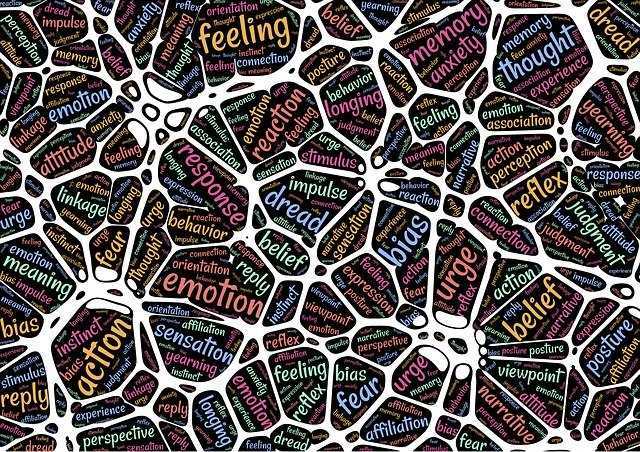Career Matches for ISTJ Personalities
All products and services featured are independently selected by WikiJob. When you register or purchase through links on this page, we may earn a commission.
- What Qualities Does an ISTJ Personality Have?
- Core Strengths and Weaknesses
empty
empty
- What Is an ISTJ Like at Work?
empty
empty
- The 10 Best Career Matches for ISTJ Personality Types
empty
empty
empty
empty
empty
empty
empty
empty
empty
empty
- Three Jobs to Avoid
empty
empty
empty
- Final Thoughts
Myers-Briggs is a personality test widely used by employers to assess an individual’s compatibility with the organisation and the role they are applying for. The test provides an insight into a candidate’s strengths and weaknesses, based on 16 personality types.
As an individual, the test can be an effective way of becoming more self-aware; identifying your capabilities and gaining a better understanding of the careers that are best suited to your personality and skills.
This article focuses on the ISTJ type: what they do well and not so well, what they're like at work and as a leader, and which are the 10 best career options for an ISTJ (as well as three to avoid).
What Qualities Does an ISTJ Personality Have?
ISTJ stands for:
- (I) Introverted
- (S) Sensing
- (T) Thinking
- (J) Judging
This personality type indicates that the individual prefers their own company (Introverted), is fact- and detail-orientated (Sensing), makes decisions based on logic and reason (Thinking), and prefers to be prepared, organised, planned and structured (Judging).
Often referred to as ‘Inspector Personalities’, ISTJs concern themselves with doing things by the book; they focus on detail and want to do everything properly. These people are organisers: they thrive on creating order, and put procedures in place in their personal life and at work to maintain structure and consistency.
ISTJs are reliable, responsible, neat and tidy, dutiful, and keen to uphold traditions.
Although ISTJs are introverted by nature, they are self-assured and know their place in life, rarely feeling isolated. They are keen to bring their skills to established systems within organisations, or otherwise, and their speciality is ensuring standards and regulations are met and that social order is maintained.

Core Strengths and Weaknesses
ISTJ Strengths
-
ISTJs are hardworking and highly dependable; the most prominent strength of this personality type is perseverance. The commitment and determination of an ISTJ is something to be admired; they simply don’t give up.
-
ISTJs are detail-orientated – they like facts and figures. This means they can be relied upon to excel in tasks where accuracy is vital. Unlike other personality types, an ISTJ will never accept that something is right because another person says it is – they are meticulous in checking detail and have an excellent eye for spotting errors, gaps and holes that other people won’t see.
-
The judging element of the ISTJ personality type means they have a firm handle on timing and priorities. They have excellent time management, are punctual and meet deadlines. In a work environment, these qualities mean they are skilled at organisational tasks like putting together schedules, planning and keeping to a set agenda.
-
ISTJs may not vocalise their unwavering loyalty to their company, colleagues, friends or family, but it is most certainly there. This personality type has a deeply rooted commitment to defend and protect those around them. On a day-to-day basis, this loyalty translates to an individual who is reliable, committed and dependable.
ISTJ Weaknesses
-
Given their tendency to obey rules, ISTJs can often be labelled stubborn because they are so inflexible when it comes to bending them. This can also be the case when they have implemented a procedure or system; they often believe that their way is the only way to do things.
-
ISTJs are sticklers for tradition and doing things a certain way, which means that they are often resistant to change and innovation. Their procedure-led existence means they can often feel stressed by change – they are suspicious of new ways of doing things and are likely to try and stifle developments and creativity. In a working environment, ISTJs can be seen as difficult, purposely making things harder than they need to be. On a personal level, resistance to change can limit their potential for progression.
-
ISTJs often suffer from guilt; they are so concerned with doing things properly that they find it difficult to accept that sometimes things just don’t go to plan. They often second-guess their own decisions and blame themselves.
-
Telling the truth is extremely important to ISTJs and their loyalty to the truth can often land them in trouble when it comes to interpersonal relationships. They are so concerned with telling the truth that they take little care over other people’s feelings and are not tactful in their approach.
What Is an ISTJ Like at Work?
ISTJs set a great example to wayward employees; their loyalty to the company and unwavering respect for the rules makes them extremely reliable and trustworthy.
While they may not be the person to arrange the Christmas party or be a shoulder to cry on in the meeting room, they will get the document to you when they say they will and bring order to every department they work in.
ISTJs in a Team
ISTJs are hardworking and dependable team members. They will be keen to ensure the team takes a structured approach, with clear goals and roles identified.
They will want to get on with things as soon as possible and won’t cope well in a team where concepts and ideas are discussed for too long without a plan being decided upon.
They also don’t have time for emotions and complex relationships between team members; they are business-like in their approach and don’t believe personal issues should be brought into the room.
ISTJs as Managers
Natural organisers, ISTJs often gravitate towards leadership positions.
They are at their best when working with clear objectives and time frames, so are likely to struggle with projects which don’t have specific, measurable result expectations. They will lead a team to success, meeting objectives and getting results.
Their team may not get the praise they feel they need along the way; ISTJ leaders are focused on achieving the desired results and will have little time for niceties or consideration of personal issues.
The 10 Best Career Matches for ISTJ Personality Types
ISTJs are best suited to careers where accuracy, fact and order are key to the role.
Engineering, maths, science, finance and technology all demand the attention to detail and methodical approach ISTJs crave. There are professions in the healthcare and creative sectors which may also be appealing to this personality type.
Top careers most suited to this personality type include:
1. Dentist
Dentists work in an orderly manner, usually on their own or with an assistant – this quiet, structured environment suits the introverted ISTJ.
This personality type will enjoy the procedure-led nature of the job; dentists examine a patient in a set manner, diagnose a problem and decide on a plan of action with an end goal identified.
2. Accountant
ISTJs are well known for being highly organised and meticulous, working best when an end goal is identified. These qualities are well suited to the role of an accountant.
Accountants methodically work with financial records, ensuring they are correct before submitting tax information within a certain time frame.
To succeed in this role, an individual needs to be accurate, thorough and structured in their approach; this style of working suits this detail-orientated personality type.
To find out which jobs fit your personality best, visit our partner CareerFitter and take the Career Test for FREE.
3. Business Analyst
ISTJs thrive on enforcing order and procedure. Working as a Business Analyst allows them to work in an ordered fashion by gathering, organising and processing data.
Working with concrete figures and setting specific targets is appealing to an ISTJ personality type. In this role, they will know exactly where they stand and will have a clear objective to work towards.
4. Military Officer
ISTJs are extremely loyal, making them excellent candidates for a role where a sense of duty is crucial.
A set hierarchy and transparent expectations suit ISTJs well, as does the prospect of working with a group of colleagues who have the same respect for organisation and structure.
While management in some roles is difficult for ISTJs because they struggle to give team members the praise they need, the role of military officer is well suited to this personality type because their command is governed by clear protocol – regardless of whether they are praising or reprimanding.
5. Inspector
This personality type is commonly known as the ‘Inspector Personality’ for a reason. ISTJs are interested in doing things correctly and take a no-nonsense approach – perfect qualities for the role of inspector.
A good inspector won’t make allowances and ISTJs delight in letting nothing slide when it comes to standards being met. Their conservative persona is an excellent fit with a position that demands a serious approach.
An inspector follows a specific framework and works methodically. The role involves collecting and analysing data, which plays to the ISTJ’s strengths.
6. Supply Chain Manager
As a supply chain manager, ISTJs can draw on their excellent critical-thinking skills to work out complicated logistics.
Their attention to detail means they will be accurate when tracking data and the need to ensure the smooth running of processes in this role is likely to be very appealing.
In this role, an ISTJ may prove valuable to the company because they are likely to streamline processes by implementing new procedures.

7. Judge
The rule of law is very clear on what is right and wrong, making this a role which sits comfortably with the ever-dutiful ISTJ.
As with the military, the processes that go with being a judge are attractive to ISTJs – they are strict, organised and have clear deadlines.
The persona of a judge fits with that of the ISTJ: serious, no-nonsense and focused.
8. Computer Engineer
A job well suited to the introverted ISTJs, computer engineers tend to work alone.
The systematic way of working suits ISTJs: they have a clear objective and are left to get on with the job.
The perseverance of an ISTJ personality means they will be good at this job. They won’t stop until they have identified and fixed the problem.
9. Bank Cashier
Bank cashiers need to be trustworthy and responsible – two traits well suited to ISTJs, who are fiercely loyal to their employer.
The job itself is detail and fact-orientated, and the individual must work methodically. ISTJs will be good at spotting any discrepancies and following strict rules to prevent fraudulent activity.
ISTJs are known for their straight talking and ability to retain large amounts of detail – both traits well suited to this role.
10. Property Manager
Dealing with many clients at once means a property manager must be well organised. An ISTJ’s excellent time management skills mean they are likely to cope well with the demands of the role.
Property management involves inspection – perfect for this ‘Inspector’ personality.
ISTJs don’t let emotions get in the way when it comes to meeting criteria or a deadline, so they are good people to have around when it comes to taking a hard line with tenants.
Three Jobs to Avoid
Jobs to avoid are those which have flexible time frames, vague details and abstract concepts. ISTJs don’t like ambiguity – they like to know what they are doing and how long they have in which to do it.
1. Preschool Teacher
Working with children often means disorganisation – regardless of how organised you were before they arrived. ISTJs will not cope well with the lack of control.
ISTJs don’t like surprises or unpredictable behaviour and will gravitate to predictable surroundings. This does not fit well with a room filled with children, who are, by their very nature, unpredictable.
Children enjoy abstract thinking and have vast imaginations. Given the ISTJs enthusiasm for facts, they may struggle to engage with the pre-schoolers.
2. Event Manager
Whilst it is important for event managers to be extremely organised – something ISTJs excel at – this personality type is likely to struggle with the uncertainty of plans.
This is a role which demands understanding when dealing with the changing expectations of clients. An ISTJ personality may be resistant to shifts in deadlines and surprises sprung along the way.
Unless the event manager works for a hotel or another organisation where they are stationed in one venue, this role involves new environments, buildings and teams. An ISTJ personality will not cope well with unfamiliar surroundings.
3. Psychologist
Psychologists deal with thoughts and feelings rather than tangible objects or facts. This presents ISTJs with an immediate problem.
ISTJs need concrete details and definitive answers. The work of a psychologist is often too conceptual and fluid for an ISTJ.
ISTJs may struggle with the lack of an end point or the slow progress they may experience with a client. The need to be flexible will not sit comfortably with an ISTJ personality.
Final Thoughts
ISTJ is the third most common personality type and the most common in men.
ISTJs can’t help but bring order to everything they are involved in – even at a party they will be found rearranging the worktop to streamline the drink-making process.
They are often considered the backbone of an organisation; a neutral decision-maker who finds order in chaos.
Despite often being seen as killjoys, quoting the rules and putting barriers in the way of other team members’ exciting plans, they are also the individuals who ensure that deadlines are achieved and targets are met, resulting in a successful project.



